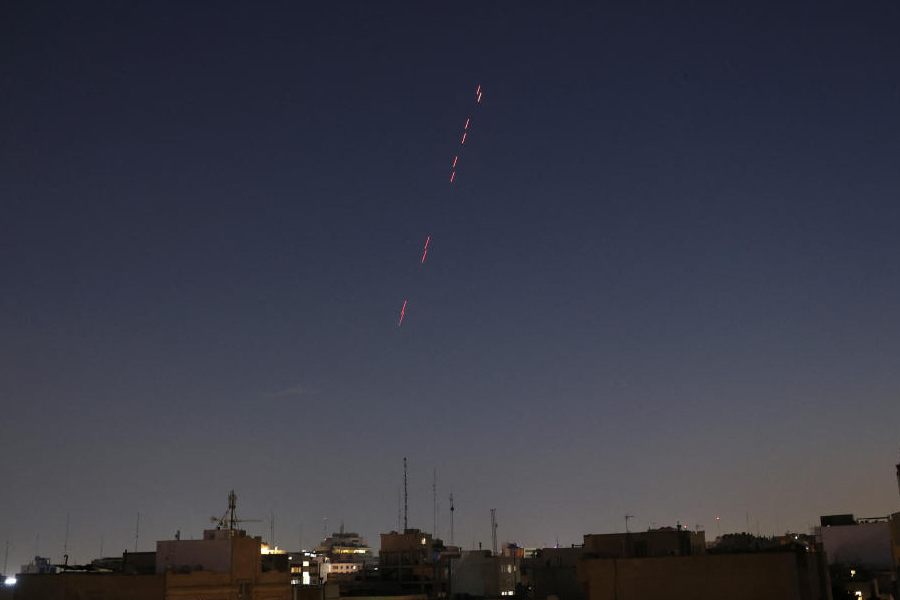Israel and Iran exchanged military strikes on Friday in a sharp escalation of hostilities that pushed the Middle East to the brink of a broader conflict, with both nations activating air defences and issuing urgent security warnings.
Air raid sirens blared in Jerusalem as the Israeli military said it had identified and was working to intercept a missile launched from Yemen, Reuters reported.
The attack came hours after Israeli warplanes struck key targets inside Iran, including suspected nuclear facilities, missile sites, and senior military leadership compounds.
In Tehran, Iranian air defence systems were activated over the capital, near the compound of Supreme Leader Ayatollah Ali Khamenei and the presidential office, according to Iranian state media.
Explosions were also reported in the city of Isfahan and near the Fordow nuclear site. Iranian media claimed that air defences shot down an Israeli drone in the vicinity of Fordow.
Iran's Press TV said a televised statement by Khamenei would be aired shortly. Meanwhile, the Israeli military instructed residents across the country to stay close to bomb shelters and avoid public gatherings.
The United States and United Kingdom has issued emergency travel advisories.
The U.S. State Department warned of possible missile, drone, or rocket activity over Iraq and Jordan, advising citizens to shelter in place and avoid travel to Iran. U.S. citizens already in Iran were urged to leave immediately.
American government employees and their families in Israel were directed to shelter in place until further notice.
British foreign secretary David Lammy called for restraint and urged UK nationals to avoid travelling to Israel, citing the deteriorating security situation.
The military confrontation has already disrupted civilian aviation, with several airlines rerouting or cancelling flights to avoid the increasingly volatile airspace across the region.
The Israeli operation, described by officials as a “prolonged campaign” to prevent Iran from developing nuclear weapons, has already inflicted major damage.
Israeli airstrikes killed at least 20 senior Iranian military figures, including General Hossein Salami, head of the Islamic Revolutionary Guard Corps (IRGC); General Amir Ali Hajizadeh, commander of its Aerospace Force; and the armed forces chief of staff, Major General Mohammad Bagheri, reported Reuters quoting regional sources.
Their deaths were later confirmed by Iranian state media. Mohammad Pakpour, newly appointed as IRGC chief, warned that the “gates of hell” would open in response to the Israeli attacks, according to the Tehran Times.
Israeli officials said the military campaign was enabled by a series of covert Mossad operations, including the smuggling of precision-guided weapons into Iran and the temporary setup of a drone launch base near Tehran.
These claims remain unverified independently.
Iranian news agency NourNews reported that at least 78 civilians were killed and over 300 injured in Israeli strikes on residential areas in Tehran — figures not independently confirmed.
Despite Iranian denials of having launched drones or missiles towards Israel in retaliation, the situation on the ground points to an exchange of hostilities between the two long-standing adversaries.
(With inputs from Reuters)










